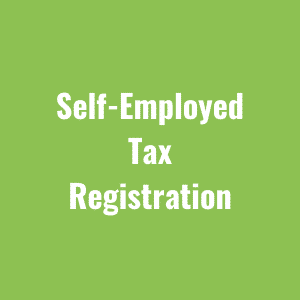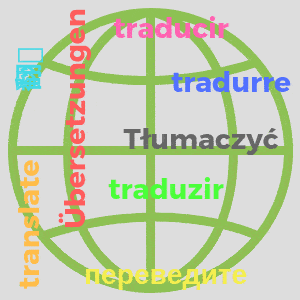How to apply for a Social Security Number in Germany
The Rentenversicherungsnummer
When I moved to Berlin I didn’t have a job waiting for me, instead I was entering on my tourist visa and then applying for a freelance work visa. As a freelance worker in Germany, I needed to get health insurance (mandatory!), but I didn’t need to get a Sozialversicherungsnummer (which is voluntary!).
What is a Sozialversicherungsnummer? It literally translates as “Social Insurance Number,” and it is the German Pension Insurance Number that all workers in Germany—mainly all workers who aren’t freelance-based—must have to get identified by the German public pension scheme (the Deutsche Rentenversicherung). It is also called Rentenversicherungsnummer and is abbreviated RNVR.
The German Public Pension Scheme, Rentenversicherung, is the public pension fund that all employees (some exceptions may apply) have to pay into and that allows them to:
- be covered by German health insurance,
- get assistance if they become unemployed,
- have a pension at retirement,
- get help if they can no longer look after themselves due to illness or old age and need care,
- get all costs covered in case of an occupational accident or occupational disease (accident insurance).
Employers must register their employees for social security when employment starts. Depending on the type of employment, the relevant collecting agency is either a statutory health insurance company (i.e. TK or AOK), the artists’ social insurance (Künstlersozialkasse) or the central agency for mini-jobs (Minijob-Zentrale).
In most cases, freelancers do not have the obligation to contribute to the social security system (pension insurance, unemployment insurance and accident insurance). In other words, self-employed people in Germany only have the obligation to contribute to the health insurance fund, either public or private. If you do not have health insurance yet and/or want to contribute to the social security system, you can request a free quote from a trusted and independent German insurance broker here.
German nationals, since 2005, don’t have to apply for this number as it is assigned to them at birth, but all foreign workers who are in Germany on a job contract (and not freelance) must apply for one.
The social security number itself is a series of 11 digits and 1 letter and it is as in the image shown above. As you can see, it is divided into four parts:
- with the first part (the 66) being the Area number of the pension insurance institution;
- the 150872 in the second bit is your date of birth;
- the letter (P) is the initial letter of your last name;
- the 10th and 11th number (the 0-8 in the last bit of numbers) is a serial number designating gender (00-49 male and 50-99 female);
- the final number in the 12th space is a check digit (it's often attached to the two previous digits). These numbers are unique to each person and each worker contributing to the pension fund must have one.
Getting this number (as a non-native who didn’t have it assigned) requires you to apply for public health insurance; once you’ve applied for the public health insurance you will receive an Insurance Card in the mail 2-4 weeks later. You can apply for TK, the most popular public health insurance fund here.
To know your social insurance number you can request a special document from your health insurance company, called Mitgliedsbescheinigung, which is a membership confirmation document. The reason there are two different numbers to identify health insurance from social/pension insurance in Germany is down to the data protection laws; these laws make it impossible for one number to serve as personal identification in all things.
I do not have this number because I am a freelance worker not working a job that is subject to social insurance (social benefits); in fact, on my freelance residence visa, it states that I am unable to claim any social benefits while in Germany.
In brief, if you have public health insurance, you will get it 2 to 4 weeks after you apply for insurance. If you want to know your number, ask for a membership confirmation certificate (Mitgliedsbescheinigung) from your insurer (You can usually do it online!). That certificate contains your Sozialversicherungsnummer.
If you have private health insurance, and you never had public health insurance before, you probably don't have a Sozialversicherungsnummer yet. You should request the number from the Deutsche Rentenversicherung. It is not difficult to request the document from your pension insurance to learn your Sozialversicherungsnummer. Once you asked for it, you will also receive a letter from the public pension fund. That letter contains your Versicherungsnummer.
If you have any questions regarding your number my best recommendation would be to contact your health insurance, pension fund or your company’s HR department to receive the paperwork with your number on it.
Good luck!
To know your social insurance number you can request a special document from your health insurance company, called Mitgliedsbescheinigung, which is a membership confirmation document. The reason there are two different numbers to identify health insurance from social/pension insurance in Germany is down to the data protection laws; these laws make it impossible for one number to serve as personal identification in all things.
I do not have this number because I am a freelance worker not working a job that is subject to social insurance (social benefits); in fact, on my freelance residence visa, it states that I am unable to claim any social benefits while in Germany.
In brief, if you have public health insurance, you will get it 2 to 4 weeks after you apply for insurance. If you want to know your number, ask for a membership confirmation certificate (Mitgliedsbescheinigung) from your insurer (You can usually do it online!). That certificate contains your Sozialversicherungsnummer.
If you have private health insurance, and you never had public health insurance before, you probably don't have a Sozialversicherungsnummer yet. You should request the number from the Deutsche Rentenversicherung. It is not difficult to request the document from your pension insurance to learn your Sozialversicherungsnummer. Once you asked for it, you will also receive a letter from the public pension fund. That letter contains your Versicherungsnummer.
If you have any questions regarding your number my best recommendation would be to contact your health insurance, pension fund or your company’s HR department to receive the paperwork with your number on it.
Good luck!
Tres C is an American who’s lived and worked all over the world and who has traveled extensively. She moved to Berlin in July 2017 with her dogs; she’s excited to share her hard-earned knowledge about relocating to Berlin through her writing on this blog.

























0 Comments